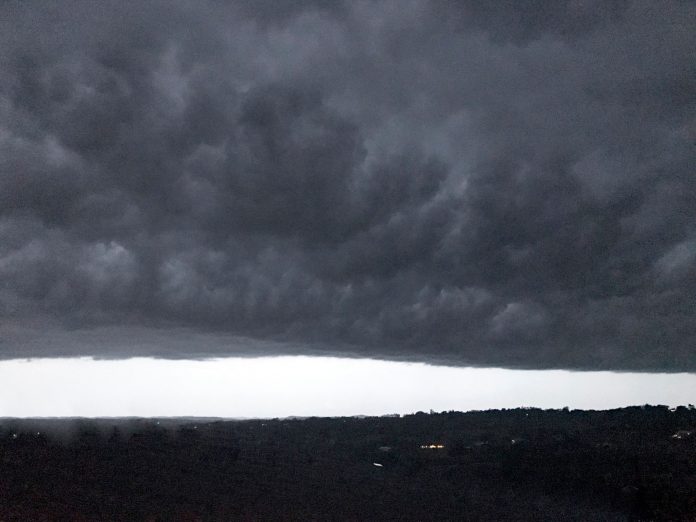The reported levels of depression amongst medical students and doctors are alarming.
The Beyond Blue study of doctors’ mental health (1) has shown that 3.4% of doctors surveyed have very high levels of psychological distress, and this is significantly higher than the general population (2.6%) and other professionals (0.7%). Of particular concern is the level of very high psychological distress in doctors under 30 (5.9%) compared with the general population (2.5%) and other professionals (0.5%).
21% of doctors reported having a diagnosis of depression and 6% had a current diagnosis.
25% (1 in 4) doctors reported having thoughts of suicide in the previous 12 months, and 2% reported having attempted suicide.
For all categories, the rates of ill mental health were even higher for female doctors, who, along with young doctors, are at great risk.
Female doctors
Female doctors were more likely than males to have thoughts of suicide in the previous 12 months (11.0% vs 10.0%), and in the time prior to the previous 12 months (28.5% vs 22.3%) and to have attempted suicide (3.3% vs 1.6%). They also reported greater work stress (37.4% vs 19.8% for conflict between career and family/personal responsibilities) and were more likely to report experiencing stressful life events in the past years compared with male doctors.
Young doctors
Young doctors are particularly vulnerable to poor mental health and high levels of stress, and report high rates of burnout, as measured by emotional exhaustion (47.5%), low professional efficacy (17.6%) and high cynicism (45.8%). Female medical students are particularly at risk, with high levels of a minor psychiatric disorder (47.2%), and very high levels of psychological distress (10.4%). 9.8% had a current diagnosis of depression, 4.6% had attempted suicide, 20.5% had had suicidal thoughts in the previous 12 months, and 34.3% prior to the previous 12 months.
These figures paint a pretty grim picture, and of particular concern is the very high levels of distress among our young doctors and medical students, especially our women.
Am I just sad or could I be clinically depressed?
There are different grades of severity in depression but even “so called” minor depressive syndromes may be associated with significant disability and handicap, at some times higher than those with physical disorders. At the other end of the spectrum is severe depression associated with a high morbidity, high levels of dysfunction and a high mortality.
The DSM5 definition of depression offers a comprehensive definition of the symptoms of major depression.
| A. Five (or more) of the following symptoms have been present during the same 2-week period and represent a change from previous functioning; at least one of the symptoms is either (1) depressed mood or (2) loss of interest or pleasure. Note: Do not include symptoms that are clearly attributable to another medical condition.
1. Depressed mood most of the day, nearly every day, as indicated by either subjective report (e.g., feels sad, empty, hopeless) or observation made by others (e.g., appears tearful). (Note: In children and adolescents, can be irritable mood.) 2. Markedly diminished interest or pleasure in all, or almost all, activities most of the day, nearly every day (as indicated by either subjective account or observation.) 3. Significant weight loss when not dieting or weight gain (e.g., a change of more than 5% of body weight in a month), or decrease or increase in appetite nearly every day. (Note: In children, consider failure to make expected weight gain.) 4. Insomnia or hypersomnia nearly every day. 5. Psychomotor agitation or retardation nearly every day (observable by others, not merely subjective feelings of restlessness or being slowed down) 6. Fatigue or loss of energy nearly every day. 7. Feelings of worthlessness or excessive or inappropriate guilt (which may be delusional) nearly every day (not merely self-reproach or guilt about being sick). 8. Diminished ability to think or concentrate, or indecisiveness, nearly every day (either by subjective account or as observed by others). 9. Recurrent thoughts of death (not just fear of dying), recurrent suicidal ideation without a specific plan, or a suicide attempt or a specific plan for committing suicide. B. The symptoms cause clinically significant distress or impairment in social, occupational, or other important areas of functioning. C. The episode is not attributable to the physiological effects of a substance or to another medical condition. D. The occurrence of the major depressive episode is not better explained by schizoaffective disorder, schizophrenia, schizophreniform disorder, delusional disorder, or other specified and unspecified schizophrenia spectrum and other psychotic disorders. Reprinted with permission from the Diagnostic and Statistical Manual of Mental Disorders, Fifth Edition (Copyright © 2013). American Psychiatric Association. All Rights Reserved. |
We have deliberately included this comprehensive description of depression for several reasons. Major depression is a very significant diagnosis and it has been suggested that it can have as severe an effect on function as severe ischaemic heart disease. The high level of both doctors and students who report being diagnosed with depression and having suicidal thoughts underlines that this is a significant problem in the medical community, one which we should be aware of in ourselves and in our colleagues and one for which we should be looking for answers.
It also demonstrates the breadth of the presenting issues in depression, which may include somatic symptoms such as weight loss or gain, sleep disturbances and psychosomatic symptoms such as fatigue, headaches or abdominal pain, psychological symptoms such as guilt and anhedonia, but also changes in cognitive function. It may be easy to confuse physical manifestations of depression with other physical causes and to attribute psychological changes simply to stress or sleep deprivation.
Sometimes we are unable to view our own issues with clarity, at times we may be fearful of them, believing we have an organic problem such as dementia, so it is important for us to have a high index of mental health awareness for all of our colleagues as well for as ourselves, not being uncomfortable to ask the RUOK? question.
Grief may have similar symptoms to depression but we should always be aware that this could be a precursor to major depression.
Here are a couple of quick questions we can ask of our patients, our colleagues and ourselves to start the conversation about depression:
Quick Depression Screen (PHQ-2):
| In the past 2 weeks, how often have you been bothered by any of the following problems? | ||||
| Not at all | Several Days | More than half the days | Nearly Every Day | |
| Little interest or pleasure in doing things? | 0 | 1 | 2 | 3 |
| Feeling down, depressed or hopeless? | 0 | 1 | 2 | 3 |
| If you answered more than ‘0’ on these two questions, then you may be showing signs of depression. | ||||
Who is going to care for the doctor in distress?
Most of us know when we are struggling and in need of help, but it is difficult, as doctors, to seek it.
Despite all the hard work that has gone into changing attitudes towards ill mental health, stigmatising attitudes regarding the performance of doctors with mental health conditions persist in the medical community.
40% of doctors feel that medical professionals with a history of mental health disorders are perceived as less competent than their peers, and 48% feel that these doctors are less likely to be appointed compared to doctors without a history of mental health problems. 59% of doctors feel that being a patient causes embarrassment for a doctor. (1)
Female doctors were more likely than male doctors to view doctors with a mental health history to be as reliable as the average doctor (69% vs 55%).
There are barriers to seeking treatment and support for a mental health condition, including:
- Fear of a lack of confidentiality or privacy (52.5%)
- Embarrassment (37.4%)
- Impact on registration and right to practice (34.3%)
- Preference to rely on self or not seek help (30.5%)
- Lack of time (28.5%)
- Concerns about career development or progress (27.5%). (1)
Mandatory reporting
These attitudes have been compounded by the nightmare that is mandatory reporting, where now, doctors are avoiding seeing other doctors for support, for fear of being reported and losing their right to practice. We are self-medicating and suiciding and presumably, there are more of us out there practising when impaired, because we are afraid to seek help for fear of losing our livelihood and our personal and professional reputations, whereas if genuine help without fear of recrimination were available, we would be more likely to seek it in the early stages of illness, before great harm was done, to ourselves or to others.
One small glimmer of light that has come from the recently publicised spate of doctor suicides is that steps are being taken to review this requirement and to introduce a policy that protects patients and doctors alike.
Doctors are people too, working under enormous stress, and doing our best to care for others. We should have equal rights to be cared for ourselves when the need arises, and this stigmatisation of mental ill health cannot help but affect how we view our patients, as well as ourselves and each other, which perpetuates the suffering and discrimination unnecessarily.
Seeking help
It is hard for us as doctors to give priority to our own physical and mental health over our hard won career. Unfortunately the very nature of psychological disturbance in depression leading to low self-worth, guilt and shame will contribute to making decisions which lack self-care and self-love, and which fail to protect from the very serious consequences of depression.
Depression is an illness and any person suffering from depression deserves the very best treatment.
Both those doctors with mental health problems and those doctors considering reporting them should remember that of all those reported, very few are deregistered. The law says that for this to happen the public should be at significant risk because of the practitioner’s impairment.
It is therefore important to seek help before this occurs and in an early phase, that may be readily treated through lifestyle changes, psychotherapy and medications.
As doctors, we need to treat one another with kindness, and the tender loving care that not only our patients, but we ourselves deserve.
Reference:
- Beyond Blue National Mental Health Survey of Doctors and Medical Students 2103
Online resources:
We recommend all students read “Keeping Your Grass Greener”, an excellent publication by AMSA specifically aimed at the issues and needs of medical students.
http://mentalhealth.amsa.org.au/wp-content/uploads/2014/08/KYGGWebVersion.pdf
https://www.amsa.org.au/sites/amsa.org.au/files
Other helpful resources include:
DHAS – Doctors Health Advisory Service NSW and ACT 02 94376552
24 hour helpline 0409 446 489
The Doctors’ Health Advisory Service in NSW operates a telephone Help Line to provide personal advice to practitioners and students facing difficulties. Anyone who is concerned about their own health, the health of a colleague, or the health of a family members who is a doctor or a medical student can call the Help Line.
They say most of their callers seek advice in relation to stress and mental illness, drug and alcohol problems, or personal and financial difficulties. No problem is too trivial or too serious.
http://dhas.org.au/about-dhas/about-dhas.html
Doctors Health Advisory Service Resources For Medical Students.
http://dhas.org.au/resources/resources-for-medical-students.html
Lifeline 13 11 14
Suicide Call Back Service 1300 659 467
Following are some very useful support, wellbeing and mental health resources.
We would encourage you to explore these sites to raise your awareness of what is available which may be valuable at some stage for either yourself or a colleague.
Beyond Blue https://www.beyondblue.org.au/get-support/get-immediate-support
Beyond Blue Phone 24/7 support 1300 22 46 36
Reachout at https://au.reachout.com/
MindHealthConnect http://www.mindhealthconnect.org.au/
Headspace https://www.headspace.org.au/
Mental Health Access Line 1800 011 511
a 24/7 information and access to mental health services. ED or 000 if severe distress or risk.
MensLine 1300 789 978
Mental Health Information Service 1300 794 991
Anxiety Disorders Information and Support Line1300 794 992
Gay and Lesbian Counselling Service 02 85 94 95 96
SANE helpline 1800 187 263
Online E mental Health CBT /psychoeducation
www.mindhealthconnect.org.au excellent psychoeducation resources for wellbeing, building resilience etc.
https://moodgym.anu.edu.au/welcome (new updated version expected April 2017)
Telephone CBT- via New Access- 1300 137 934
Other useful diagnostic tools for depression are found on:
http://www.aafp.org/afp/2012/0115/p139.html
http://www.blackdoginstitute.org.au/docs/4.DMI10withinstructions.pdf
http://www.blackdoginstitute.org.au/public/depression/self-test.cfm
https://www.beyondblue.org.au/the-facts/anxiety-and-depression-checklist-k10









